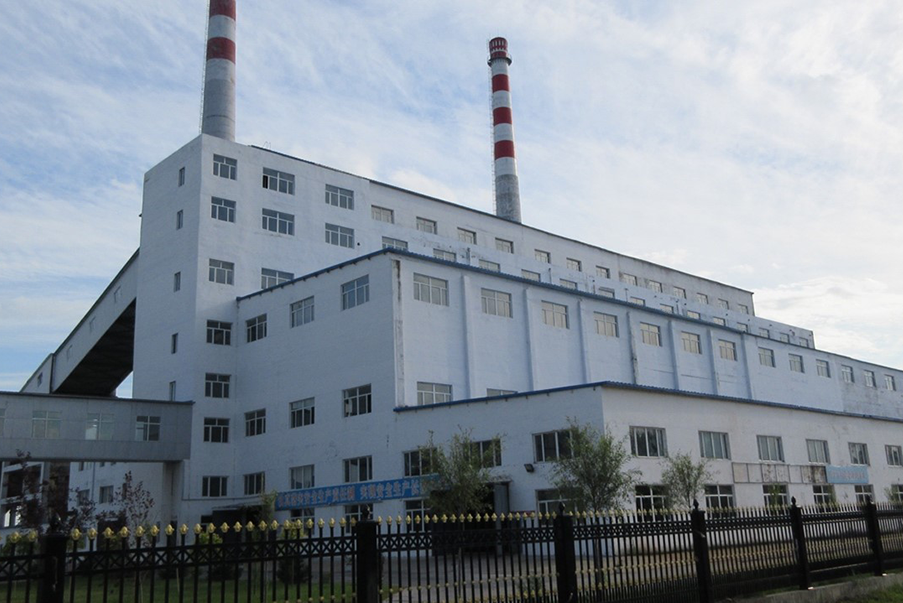East Asia Blog Series
Modernizing District Heating Systems in Heilongjiang
Xinjian Liu 2 Jun 2022
A district heating project taps the help of private sector companies to promote higher energy efficiency and lower emissions.
Overview
A project supported by the ADB has provided safer, cleaner, and more reliable heating services to 1.21 million urban residents in six cities of Heilongjiang province in the PRC. As the primary users of heating services, the health of women and children in the project areas improved through better quality of indoor and outdoor air. It expanded and upgraded district heating systems to make them more energy-efficient, thereby reducing emissions of greenhouse gases and air pollutants in the project areas.
Project information
44011-013: Heilongjiang Energy Efficient District Heating Project
Project snapshot
- Approval date: 25 Sep 2012
- Closing date: 29 Nov 2019
- Amount of loan: US$ 353 million
- Executing agency: Heilongjiang Provincial Government, the PRC
- Financing: Asian Development Bank
Context
Heilongjiang is an underdeveloped northeastern province regularly battered by frigid Siberian winds. The province experiences long winter seasons that last 6 to 7 months and temperatures that could fall as low as -40°C. Space heating is one of the basic needs and provides essential support to socio-economic activities. District heating systems are most suitable for areas where heating seasons are relatively long.
Challenge
Inadequate coverage of district heating in low-income urban areas forced poor households to use indoor coal-based stoves for space heating. These heating systems were old, inefficient, lacked proper emission control equipment, and a major source of respiratory diseases. Small heat-only boilers in many cities of Heilongjiang had a combustion efficiency of 55%, far below the 87% that modern combined heat and power plants or large heat-only boilers can achieve. The burning of coal through boilers and stoves worsened indoor and outdoor air quality. Women and children were particularly vulnerable to high indoor pollution as they tend to spend more time at home.
Solution
The Heilongjiang Energy Efficient District Heating Project was designed to expand and upgrade the district heating systems in Heilongjiang Province. Funded by a $150 million loan from ADB, the project installed energy efficient heating sources and heat exchangers; insulated pipelines; computerized monitoring and control systems; and removed and dismantled small, inefficient, and polluting neighborhood coal-fired boilers and coal-fired household stoves.
The project adopted environment-friendly boiler technology with high energy efficiency and lower emissions. The installment and use of computerized monitoring and control systems to manage the demand and supply of heat prevented the overheating of buildings and supported two private enterprises to promote private sector participation.
The project was implemented in six cities (Harbin, Jiamusi, Qitaihe, Tongjiang, Yichun Tangwanghe, and Hailin), installing 406 megawatt thermal-equivalent of three energy-efficient heat generators, 226 heating exchange stations, 161 km of insulated heating pipelines, and 5 computerized monitoring and control systems. It also removed 361 small, inefficient, and polluting neighborhood coal-fired boilers and 116,160 coal-fired household stoves.
The project supported two private heating companies―Tongjiang Changheng Cogeneration Company and Hailin Hailang Thermal Power Company―which operate in remote small cities through financing and capacity development. It also improved energy efficient heat generation capacity in the cities of Tongjiang and Hailin.
The capacity of the executing agency, the project management office, and the six subproject implementing agencies to supervise and manage project implementation was strengthened through training and logistics provision. Knowledge-sharing sessions were organized between private sector companies and state-owned enterprises to promote good business practices.
The project also raised the awareness of the public, particularly women, through energy conservation awareness programs. Women are the primary users of heating services and their participation in these sessions was critical for a gender-sensitive delivery and quality of district heating services.
Results
Low-carbon heating for residents
The expanded coverage of upgraded district heating systems reached 30 million m2 without a net increase in emissions benefiting about 1.21 million urban residents or 226,499 urban households, including 21,137 poor households and 1,829 households headed by women. The disposal of low-efficiency, high-pollution coal-fired household stoves has lessened the domestic chores working hour allowing women more time to spend for income-generating activities, learning, or recreation. Through heating tariff subsidies, waived connection fee, and discounts, the project benefited poor female-headed households with access to a cleaner, safer, and reliable heating system.
Better air quality and energy savings
By 2020, the project improved energy efficiency of the district heating systems in six urban areas in Heilongjiang. It saved 882,460 tons of estimated annual raw coal consumption. This has contributed to emission reductions of 5,787 tons of sulfur dioxide, 98,552 tons of total suspended particulates, 11,566 tons of nitrogen oxide, and 1,299,831 tons of carbon dioxide. The air quality in the project areas improved to meet Class II air quality standards. With reduced annual coal use and improved energy efficiency, the incidence of respiratory diseases and other air pollution-related health risks in the project areas are expected to decrease significantly in the long term.
Lessons
Commitment of project stakeholders is critical to the success of a project. Project implementation should be carried out under effective supervision, monitoring, and cost control. Emission of heat source pollutants during the operation period should be continuously monitored to ensure that standards are met.
With rapid urbanization comes the need for investment and rehabilitation of old heating systems. Private sector participation helps fill the huge gap in investment demand. Good practices and knowledge from the private sector could also be shared with state-owned heating companies to enhance the viability of the heating business. Generally, private heating companies attain higher tariff collection rates because of market-oriented business practices with better customer orientation.
References
Asian Development Bank (ADB). 2012. Report and Recommendations of the President to the Board of Directors: Proposed Loan to the People’s Republic of China for the Heilongjiang Energy Efficient District Heating Project. Manila.
ADB.2013. 2012 Clean Energy Investments: Project Summaries. Manila.
ADB. 2021. Completion Report: People’s Republic of China: Heilongjiang Energy Efficient District Heating Project. Manila.
Author

Xinjian Liu
Senior Project Officer (Energy), East Asia Department, ADB
This blog is reproduced from Development Asia.


